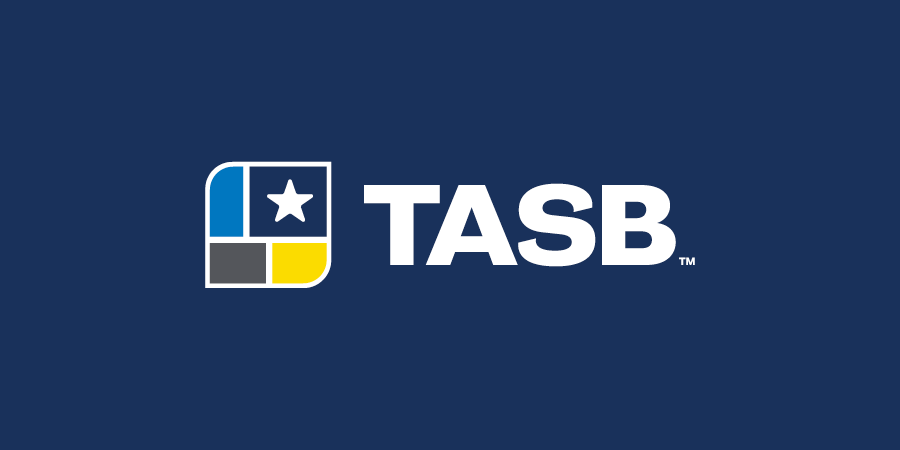Strong Local Governance: TASB Legal and Policy Services Empower Members
Growing up in the small town of Sundown, Amanda Bigbee appreciated the education she received at the local school district, which had fewer than 500 students. At Sundown ISD, where her dad was a principal and chief financial officer, she fondly remembers how everyone went the extra mile to show students the world beyond West Texas with engaging curriculum and field trips.
“Having those roots made me even more excited to come to TASB,” said Bigbee, who joined the Association as the Policy Service division director in November 2023 after serving more than 15 years as general counsel at Keller ISD, a suburban North Texas district of about 34,000 students.
Through her personal and professional experiences, Bigbee has come to understand the needs of districts like little Sundown and growing Keller — and how TASB can help each district to better serve its students and surrounding communities. She also knows that district needs vary.
“The smaller districts don’t have the opportunity to have an in-house attorney or a policy contact specifically doing policy all day,” she said. “Knowing I can help them is so important to me.”
As a key member of TASB’s Policy Service and Legal Services teams, Bigbee is part of a long legacy of providing support to member school boards dating back to the Association’s earliest years.
Priority Services
James Redmond, who served as TASB president in 1952-54, talked about the importance of high-quality information concerning trends in education and legislation at the 1953 convention. TASB, he said, “offers the factual knowledge which enables a school board member to create a solid background for his actions. Through research and through the pooling of experiences, our Association gives to local school boards this information which would be too costly and too time-consuming for any individual school board to gather.”
Policy and legal services were among the top priorities in the Association’s earliest days, but those services both took on more significant roles in the 1970s.
In 1975, the 64th Texas Legislature passed House Bill 1126, requiring every district to be accredited through the Texas Education Agency by the 1977-78 school year. As part of this accreditation process, each school board was required to develop and codify policies that govern the district’s operations. Those policies then had to be shared with all school employees and the public.
This brought on a more significant role for Policy Service, which had largely been a legal information clearinghouse up until that time. Policy Service began creating the Policy Reference Manual, which addressed districts’ need for regulatory information and model policies to support local policy decisions. The manual premiered in the summer of 1976 with TASB’s distinctive and proprietary alpha coding system.
“Legal Services and Policy Service are really core to the benefits of a TASB membership,” said Dan Troxell, TASB executive director. “School boards and their districts can be assured they are receiving expert legal and policy information that can give them the tools to strengthen local governance. That’s been the goal from the beginning — to empower boards to make the best decisions for their school communities.”
The Policy Reference Manual represented a comprehensive catalog of statutory and case law passages affecting local governance and offered model local policies for districts to adapt to their own needs. Also in 1976, Policy Service staff created the first localized policy manuals that were reviewed by TASB staff lawyers for 10 subscribing districts.
In 1977, the revised Policy Reference Manual was completed and sent to the 300 subscribing members, prompting significant changes in the way districts did business. The specificity of the policy manuals strengthened school board decision making and served as a source of information and transparency for the larger district community. District policy manuals maintained through TASB continue to provide vital information to the public about educational goals, parents' rights, and district priorities.
Working in Tandem
The Legal Services division officially kicked off in January 1978, though staff attorneys had already been assisting Policy Service as legal reviewers. Gradually, members began to consult TASB attorneys on a variety of issues that required legal research, so Legal Services expanded to meet those needs. Attorneys would receive five to eight telephone calls daily from members. Today, that number has increased exponentially. The Legal Services team fielded more than 3,200 calls in the past year, while also presenting at workshops and writing summaries of important legal developments.
The work of Legal Services spikes during a legislative year with a thorough review of every bill passed by the state legislature, even those that may not seem focused on public education at first glance. The goal is to identify any potential impacts and communicate those insights to school attorneys and district leaders across the state.
“Our members can be assured that we are doing a comprehensive legal review and identifying any items that could have an impact at the district level,” said TASB Education Counsel Joy Baskin. “We know districts don’t have the time or money to hire outside attorneys to do this work, so subscribing to TASB Legal Services provides this benefit."
In 2023, the team reviewed 264 bills from the 88th Texas Legislature and drafted two comprehensive guides to provide TASB members and school officials a way to stay ahead of legislative changes and mandates. In addition to written resources, the Legal Services team offers post-legislative training for school attorneys that provides a deep dive into the legislative session, as well as an opportunity for attendees to connect and discuss critical school law issues across Texas.
Bigbee said when she was at Keller ISD, attending the post-legislative seminar provided valuable insights and connections that helped her give the best possible support to her district.
“We could go back to our districts in a way you absolutely could not do on your own,” she said. “It enabled you to get to a place where you could implement new policies and regulations by September 1 that would be impossible otherwise.”
Additional Support and Training
In addition to the post-legislative seminar, Legal Services and Policy Service provide training and updates for board members and administrators throughout the year. The Legal and Policy teams present at TASB signature events, including txEDCON and Summer Leadership Institute. Legal Services also hosts its own annual training event, the Fall Legal Seminars, which are held at locations across the state. To ensure geography is never a barrier to participation, the teams also participate in Spring Workshops held every year in locations across Texas.
“Legal and policy updates are some of the most popular sessions we offer at TASB events,” said TASB Assistant Director of Meeting and Event Planning Jackie Clark Spencer. “Our participating members rely on the expertise they get at these sessions to make informed decisions back home.”
Although trustees and district leaders are key audiences for TASB policy and legal sessions, the teams also spend time with administrative assistants who serve boards and superintendents. Legal and policy topics are popular at the TASB Conference for Administrative Professionals, held twice each year.
“I feel more confident going home and taking care of my job responsibilities,” said Rebecca Furlough, who was new to her role this year as administrative assistant to the superintendent at Terrell ISD-Kaufman County, a district of 5,000 students east of Dallas. She attended her first TASB conference in February and said she particularly appreciated the insights from the sessions on top legal questions and the fundamentals of district policy.
Legal Services also provides guidance and connections for school attorneys across the state via the Texas Council of School Attorneys, developed in 1978. Made up of attorneys who represent Texas public school districts, the goal of the CSA is to improve Texas public education by creating connections among school district attorneys. Training and events give way to discussions on school law and the sharing of practices and ideas.
“You can’t really be a school lawyer without being in the CSA,” said Bigbee. “They provide so many resources and allow for alignment within the state. I can’t imagine trying to practice without the tools they provide.”
Critical Resources
By 1981, Legal Services had expanded to provide publications on vital topics such as student discipline, employee rights, and school district governance, and published a monthly newsletter.
Today, these resources and those produced by Policy Service continue to provide critical insights for school board members, administrators, and school attorneys across Texas. The Model Student Handbook is updated by Policy Service before each school year begins to help districts stay current with changes in state regulations and state and federal laws. Policy Service also publishes a Model Student Code of Conduct to help school boards meet the legal requirement to adopt and publicize a student code of conduct for the district annually.
School Law eSource, maintained and updated by TASB Legal Services, is an online database of more than 200 resources on dedicated school law topics. This library, along with School Law Update, the division’s monthly newsletter that provides updates on relevant court cases across the country, helps school attorneys keep up to date with trends and issues related to school law.
For rural schools, which make up the majority of districts in Texas, resources like these are essential. Many smaller districts are unable to afford an in-house attorney and rely on TASB’s legal and policy resources to inform critical decisions.
Another way Legal Services provides assistance to smaller districts is by offering telephone consultations for school board members and administrators across the state.
“A distinguishing feature that TASB established from the beginning is that there is a confidential relationship between Legal Services and TASB members,” said Baskin. “Legal Services was established to provide legal advice to school boards and their administrators, not to represent TASB. We are here to help our members.”
Along with confidential legal advice from Legal Services’ attorneys, Policy Review Sessions administered by the Policy Service team help districts keep their policy manuals aligned, an especially useful service for districts that are unable to employ a dedicated policy contact.
“The value of TASB Policy Service is in the personalization and care each policy consultant provides,” said Bigbee.
Supporting Local Governance
Another valuable resource provided by TASB is Policy Online®, which revolutionized policy development and accessibility for school districts by centralizing policies into a digital platform. Developed over time from single-computer software to harnessing the power of the internet, Policy Online makes it easier for districts to access, update, and customize policies according to their needs. Used by more than a thousand districts and all 20 education service centers, it streamlined the policy work, saving time and resources for administrators and ensuring consistency and compliance across districts.
“The cost saving Policy Online provided districts was significant,” said Gail Ayers, who retired this year after 47 years with Policy Service. “Not only did it save districts copying costs and staff hours necessary to sustain a large number of hard-copy manuals, but it also saved time in finding the right policy with no more uncertainty about whether the policy manual you’re looking at has been correctly maintained.”
New information is provided in numbered updates, which are issued twice a year to help districts comply with changes in laws and regulations. Ayers was at TASB when the first numbered update went out in 1977, and she retired as the Policy Service assistant director as update 123 was releasing in May.
Policy Service and Legal Services constantly monitor recent changes in state and federal law, court cases, and decisions by the attorney general and the commissioner of education to determine policy implications and prepare recommended revisions to district policy manuals.
“Since 1949, when they were incorporated, [TASB has] taken all the legislative laws that have been passed since that time and codified them into the legal policy that every school district must adhere to,” said Jim Rice, a former Fort Bend ISD trustee who served on the TASB board of directors from 2012 to 2022, including as president in 2020-21.
“Now, TASB didn’t write the law, they codified the law and have organized it so it’s a good reference material.” From there, it is up to districts to tweak and make changes to TASB’s proposed local policy language to fit their own school district priorities, said Rice.
Both these foundational TASB services have supported districts through pivotal times over the Association’s long history — from significant school finance changes to natural disasters such as Hurricane Katrina to the pandemic.
“I see things from the district side of the story,” Bigbee said. “TASB provides legal support, innovation in policy services, and unwavering dedication to the betterment of schools across the state.”
Photo: The Policy Service team works together on updating the policy manual in 1982.
Beth Griesmer
Beth Griesmer is a senior communications specialist for TASB.




